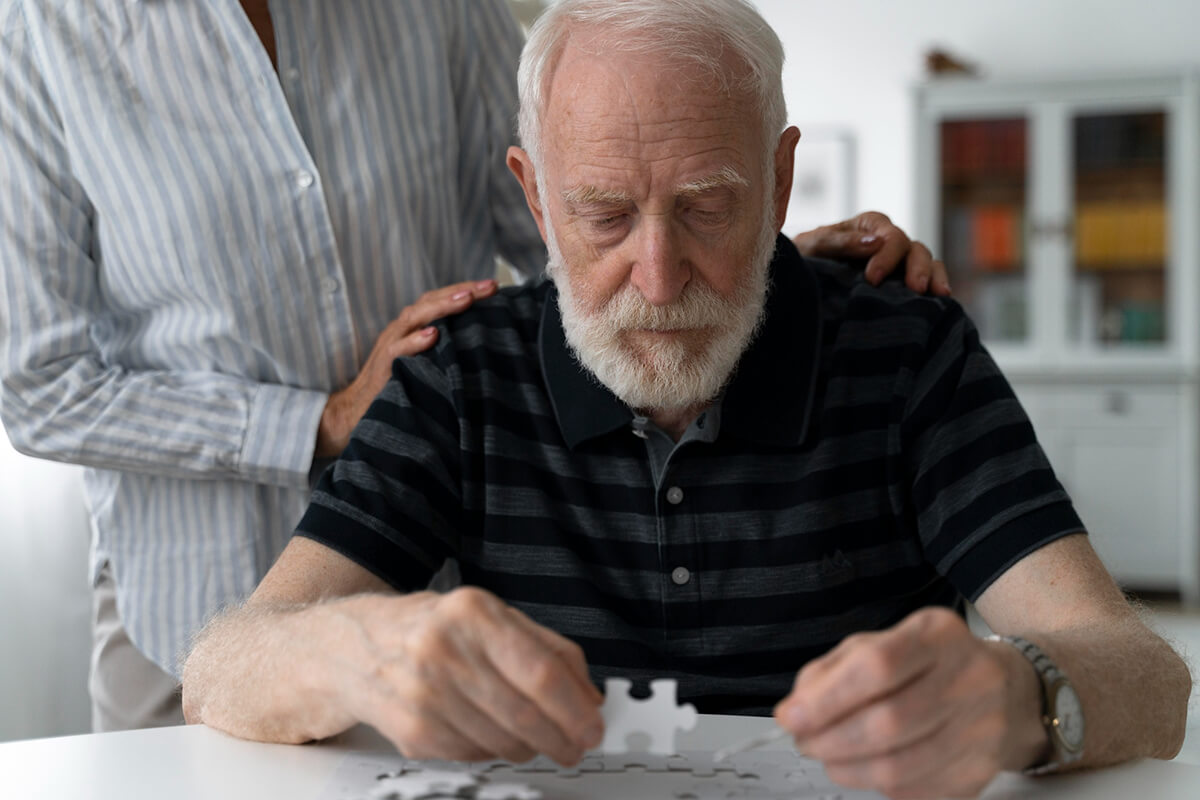If you have loved ones with dementia , you might feel overwhelmed and not sure what to do. Dementia is a progressive condition leading to the decline of cognitive abilities that affect memory and behavior.
Caring for someone you love with Dementia at home can be challenging. So, how to make things easier for you and your loved one? In this blog post, we’ll discuss some tips for caring for a parent with Dementia at home.


What is Dementia? Dementia is a condition that leads to the deterioration in cognitive function. It affects memory, thinking ability, and comprehension.It can be gradual or sudden in onset, and it ranges in severity. Alterations of mood and behavior can go with this. Other matters affected by this condition are orientation, calculation, and language abilities.Signs and symptoms
Dementia is a serious illness that affects your brain and can change the way one can think, feel, or act. The symptoms of Dementia undergo in three stages.
Early-stage: The signs of Dementia unfold themselves. Common symptoms include forgetfulness, getting lost in everyday places, and losing track of time.
Intermediate stage: Symptoms of Dementia are becoming more present in your loved ones. At this stage, your loved ones will become forgetful of names, faces, and events. They’ll likely feel confused and experience difficulty in communication.
Late-stage: Cognitive decline can be severe, with the physical signs becoming more obvious. People with Dementia may act irritable or aggressive. They also might have difficulty walking or picking things up, and they may not be able to recognize familiar people anymore.
Causes of Dementia
Age is not the only factor in determining your risk of Dementia. Up to 9% of all cases of Dementia are early-onset, according to the World Health Organization. That means that the person gets the disease before they turn 60.
Some factors that lead to further cognitive decline:
- Low physical activeness
- Addiction to smoking, alcohol, and drugs
- Poor health and diet
- Cognitive inactivity
- Pollution and access to chemical toxicity
Is there a cure for Dementia?
Currently, there is no cure for Dementia. Medicines and therapies can only prevent the condition so far.
Dementia can be caused by many things, but Alzheimer’s disease is the most common. There are other explanations for why a person might have cognitive problems. These could include vascular problems or frontotemporal cognitive disorders like Parkinson’s disease.
Sometimes, patients may have over one type of cognitive decline at once. This can confuse their loved ones who are trying to understand what could’ve caused this change in behavior patterns.


How do you support your loved ones with Dementia at home?When a loved one has Dementia, it’s difficult to know how to best support them. , there are many ways that you can help your loved one feel comfortable and at home in their home.Here are a few of how you can provide support:Make your home safe
It’s important to create a calm and supportive environment for your loved ones to ease their stress. Keep the environment clutter-free and well-lit. Dementia can cause confusion and anxiety, so it’s important to keep the environment as calm as possible. Make sure there is plenty of lighting so your loved one can see it as well.
Know your emergency numbers
Know your emergency numbers! You’ll be able to call for help if your loved ones experience an emergency. This way, medical professionals will care them for during an emergency
Assist with daily tasks as needed
A person with Dementia will forget how to do basic tasks like bathing, eating, or dressing. That’s why you need to be at their side and assist them with their basic needs. Prepare necessary tools and items when you’re tasked with helping your loved ones.
Encourage socialization and activity
It’s important to encourage socialization and activity as much as possible. They can stay mentally healthy by doing things like walking in the garden, reading books, and talking to a family member. This prevents them from becoming isolated or agitated.
Plan for changes in behavior or mood
“Sundowning” is a term wherein a person with Dementia experiences aggression in the late afternoon. As the daylight fades and they become more tired and their agitation may increase as well. Try reducing noise and clutter. Have time alone with their favorite activity so they don’t feel abandoned when things get tough again in the afternoon.
Seek support from professionals or other caregivers
Caring for your loved one can feel overwhelming and isolating. But, don’t fret – there are plenty of support groups and resources available. Professional caregivers, like nurses or social workers, can offer practical advice and support.
Help them as much as you can
If they are feeling overwhelmed or dependent, it’s important to focus on their needs. If you see them struggling to close the door, try to open the door for them. Provide support and help with everything from making food to cooking to keeping the home clean.
Establish a daily routine
It’s important to set a routine of how you will care for them daily. That way, your loved one can expect to respond to such a routine without them getting confused or agitated. Also, establish a schedule of activities that they can enjoy during the day.


Keep a list of your needs
Make sure you keep a list of what you need to do, as well as what your loved one is asking for. This will help you make informed decisions for caring for them at home.
Don’t be too hard on yourself!If you’re caring for a loved one with Dementia, know that you are not alone. We have provided some tips in this blog post, and we encourage you to read them today.
Caring for someone with dementia can be challenging. With the right tools and support, you can provide your loved ones with the care they need.









